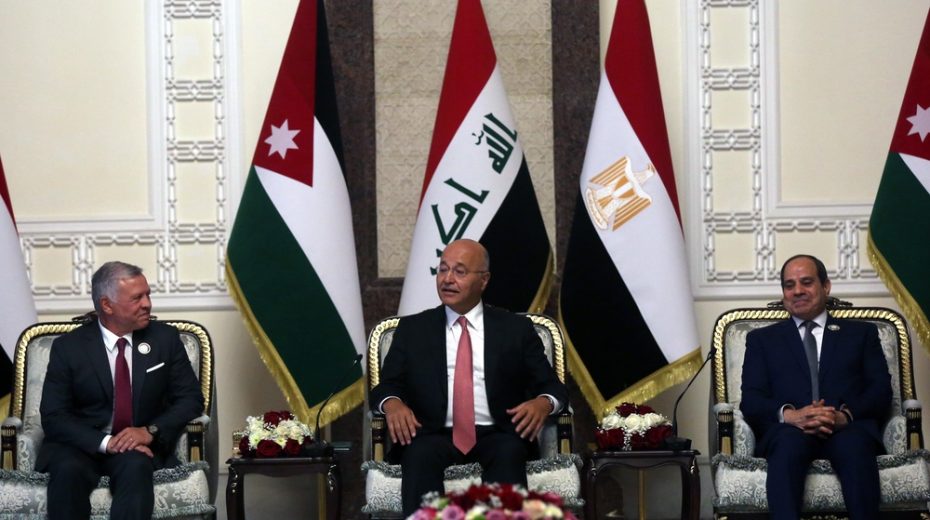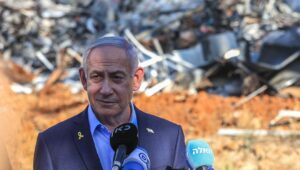A tripartite summit took place on June 27 between the King of Jordan, the Prime Minister of Iraq and the President of Egypt in Baghdad, where the establishment of the “New Levant” project was announced.
This agreement will ostensibly deal with economic cooperation in the fields of energy and electricity, agriculture, and the oil trade between the three aforementioned countries, with Jordan serving as a transit point for Iraqi oil to Egypt and from there on to Europe via the Mediterranean Sea.
In addition, it was decided to facilitate the entry of citizens from these three countries by establishing one visa for all three. This type of border agreement is rare among Arab countries and mirrors similar arrangements between European countries.
The Israeli concern regarding this agreement is the Iranian intrusion into the territory of Jordan. Already last week we discussed Jordan’s intention to open religious tourism to Iranians.
Why fear Iran? Because Iraq does not really exist as a sovereign state. It is important to note that Iraq has long ceased to be an independent nation. It is Iran and its Shiite militias that control the country, as well as its natural resources. The Iraqi government does what it’s told by Tehran. Most Iraqi politicians are corrupt and cooperate with Iran either out of ideology or fear for their lives.
Jordan’s openness to Iran will come at the expense of its already problematic relations with the Saudis and the other Gulf states. Some of the events and incidents resulting in that tension include:
- In early April there was an attempted coup in Jordan. One of the main figures involved in the failed coup was Bassem Awadallah, a former advisor to the Jordanian king who also holds Saudi citizenship. Prior to advising the king, Awadallah held high-ranking economic positions in the UAE and Bahrain.
- Princess Haya bint Hussein, the King of Jordan’s half-sister, had a public and ugly divorce from her ex-husband the Emir of Dubai that involved many scandals. The two are currently fighting over custody of their two children in UK courts.
- In addition to all this, rumors have circulated that the Saudis asked former Israeli Prime Minister Benjamin Netanyahu to transfer to them the guardianship of the Al-Aqsa Mosque atop Jerusalem’s Temple Mount.
It is unclear whether this “New Levant” agreement will save Jordan. The Hashemite Kingdom’s current foreign debt stands at more than $37 billion. Jordan suffers from severe economic hardship due to corruption, failed management, lack of natural resources and water shortages.
To give but one example of Jordan’s poor management, despite the severe water shortage in the country, not a single desalination plant has been built, while Israeli has already built six along its Mediterranean coastline. The cost of setting up such a plant is less than that of one of the private jets belonging to the royal family.
Israel has recently agreed to help in this regard when Prime Minister Naftali Bennett approved the sale of another 50 million cubic meters of water to its neighbor. That will nearly double the amount of water Israel gives to Jordan each year. And it further underscores that Jordan is a country unable to meet the needs of its citizens and which is increasingly reliant on assistant and aid from foreign country, primarily Israel, the United States and the Gulf states.















